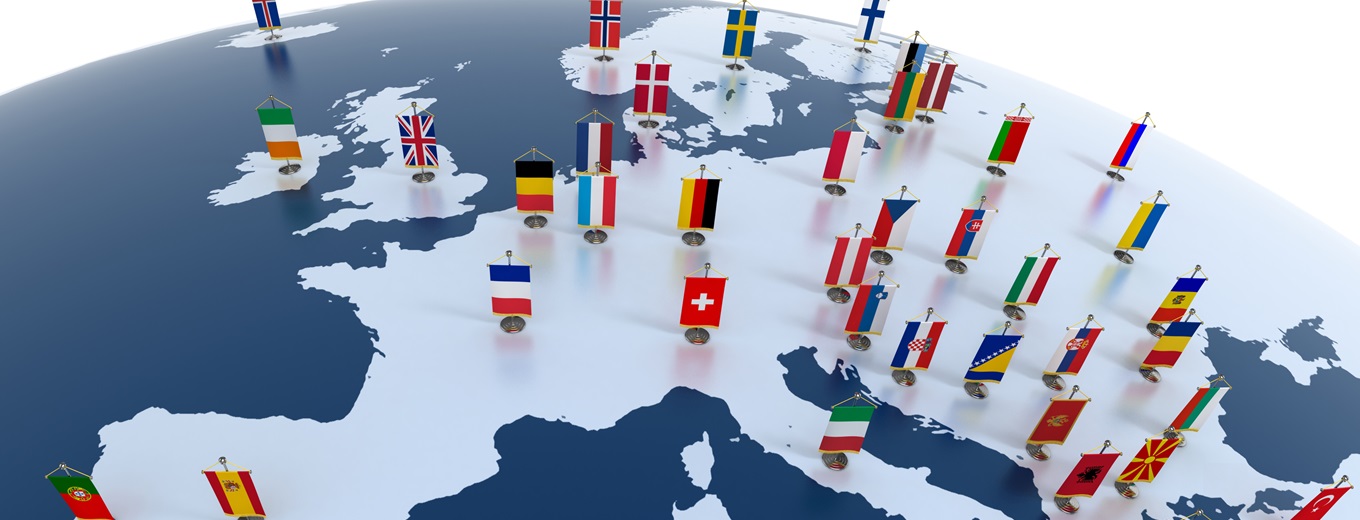European Partnerships are leading players for international cooperation in R&I and are essential means to leverage synergies.
European Partnerships are an essential player in the internationalisation of European R&I activities. Thus, guidance is needed, especially regarding the increasing complexity of international cooperation. Considering the ongoing discussions on research security at the European level, the adopted Council Recommendations on enhancing Research Security in May 2024 and the G7 Ministerial Declaration published in July 2024, both stress the importance of promoting research security and integrity in international collaborations, among other topics. At the same time, and especially in the context of the preparation for the next Framework Programme (FP10), the topic of synergy between and within programmes is high on the agenda. In this sense, ERA Learn published at the end of June 2024 two guidelines of relevance for European Partnerships: one based on international cooperation and one on synergy creation.
The first report aims to guide Partnerships in the area of international cooperation, addressing various topics, such as values and principles of international cooperation, new framework conditions in Horizon Europe, and specific examples and good practices among European Partnerships.
Considering that the Council Conclusions on “Principles and values for international cooperation in research and innovation” indicate that international cooperation aims to promote democratic values and cooperation for peace, contribute to the achievement of the Sustainable Development Goals (SDGs), provide access to the newest knowledge, and support the circulation of talents in the world, it can be highlighted that the European Partnerships contribute significantly to these endeavours. In this sense, an analysis conducted within the BMR 2022 report assessed that partnerships strongly prioritise climate (SDG 13), technological and economic SDGs (SDG 9, industry, innovation and infrastructure; SDG 8, decent work and economic growth; SDG 12, responsible consumption and production), but also sustainable cities and communities (SDG 11) and good health and well-being (SDG 3).
However, the recently published report focusing on the international cooperation of European Partnerships indicates that there are still considerable challenges for international cooperation; for instance, the concept of European partnerships is still not very well understood outside of Europe, which is mainly linked to the complex landscape. Besides, there is uncertainty regarding eligibility conditions for international partners in European Partnerships, and also, the share of partnership budgets dedicated to international cooperation varies significantly. Additionally, the changing framework conditions for international cooperation have also an impact on European Partnerships since it is limiting cross-border cooperation, especially due to the increasing focus on the Open Strategic Autonomy and linked research security concerns.
The report recommends that to operationalise the objectives of the new framework conditions for global cooperation in R&I and the development of the shared principles and guidelines, objectives and requirements for international cooperation at the level of European Partnerships, regular and structured coordination processes should be discussed and applied and allow to develop strategies for international cooperation activities. Consequently, global cooperation activities of European Partnerships need clear ethical standards and joint procedures for participation rules, robust partnership agreements, including joint governance mechanisms, conflict resolution mechanisms, IPR and security standards. Furthermore, to align data sharing and security policies within networks, Open Access policies need to be put in place to address communication and cultural barriers. Finally, successful global partnerships need preparatory activities prior to participating in joint funding calls or research coordination, e.g., identifying specific, mutually beneficial research and cooperation subjects.
The second report highlights that leveraging synergies allows partnerships to increase their impact, improves access to resources and fosters improved collaboration among the R&I system actors. The Prague Declaration on Synergies (2022) already gave an overview on how synergies can be used in the context of the European Partnerships (e.g., streamlined governance structures, synergic funding from other regional, national and EU programmes, appropriate management structures to avoid administrative complexity, align national and regional efforts, reinforce contributions of Member States and Associated Countries, reduce administrative burden on beneficiaries, report on the complementary and cumulative funding from other EU funds). Besides, the BMR 2022 report featured synergies already as a cross-cutting theme. The recently published report on the topic defines the concept and a typology of synergies, for instance, top-down synergy creating, referring to overarching policy goals and legal frameworks that can enable synergies between R&I initiatives (e.g., Partnerships); cooperative synergy creation as joint efforts based on mutual commitments and ambitions to align with one another, and indirect synergy creation for synergies at a higher level (e.g., between partnerships) and a lower level (e.g., between stakeholders). The report also provides meaningful entry points for synergy creation, namely, i. exploring needs and opportunities; ii. uniting behind common goals, iii. developing shared governance, iv. leveraging internal and internal resources, v. improving knowledge valorisation and vi. accelerating transitions.

